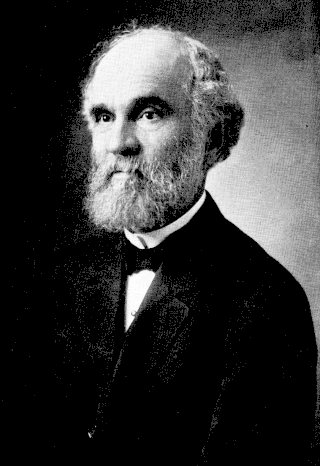Top Qs
Timeline
Chat
Perspective
Winslow Upton
American astronomer From Wikipedia, the free encyclopedia
Remove ads
Winslow Upton (October 12, 1853 – January 8, 1914) was an American astronomer.[1] He published extensively on the subject of meteorology.[2]
Remove ads
Biography
Summarize
Perspective
He received his undergraduate degree from Brown University and was valedictorian when he graduated in 1875.[1] Upton then worked as an assistant at Mitchel Observatory of the University of Cincinnati where he received his master's degree in 1877.[1] He later received an honorary doctorate from Brown in 1906.[3]
He became an assistant astronomer at the Harvard Observatory in 1877. During this time he wrote a parody of Gilbert and Sullivan's comic opera H.M.S. Pinafore titled Observatory Pinafore.[4] Then he became an assistant engineer for the U. S. Lake Survey from 1879. In 1880 he was a computer at the U.S. Naval Observatory. He was a computer and assistant professor at the U.S. Signal Service in 1881.[5][6] He was appointed professor and head of the department of astronomy at Brown in 1884.[3] He then became director of Ladd Observatory when it opened in 1891.[7] During his tenure Upton also served as secretary of the faculty and dean at Brown.[2]
He was a member of the U. S. government eclipse expeditions of 1878 and 1883, also of two private expeditions sent out in 1887 and 1889, and in 1896-97 was attached to the southern station of Harvard University at Arequipa, Peru.[8] His systematic research studying meteorology during solar eclipses has been described as "pioneering."[9]
He married Cornelia Augusta Babcock in 1882 and they had two children. Eleanor Stuart Upton was a librarian at the John Carter Brown Library and Yale University Library. Margaret Frances Upton taught bacteriology. She was also a lab technician and research assistant at hospitals.[10]
Remove ads
Published works
Summarize
Perspective
Upton wrote a monthly astronomy column for the Providence Journal for twenty years.[3]
- Upton, Winslow (1881). Information Relative to the Construction and Maintenance of Time Balls. Professional Papers of the Signal Service. Vol. 5. Washington, DC: US Government Printing Office. Retrieved 14 January 2020.
- Upton, Winslow (1883). "Lectures on Practical Astronomy". In Hazen, W. B. (ed.). Annual Report of the Chief Signal Officer, United States Army, to the Secretary of War. Vol. 1. Washington, DC: US Government Printing Office. pp. 102–120. Retrieved 14 January 2020.
- Upton, Winslow (1885). "The Use of the Spectroscope in Meteorological Observations". Memorie della Societa Degli Spettroscopisti Italiani. 13: 113. Bibcode:1885MmSSI..13..113U.
- Upton, Winslow (1887). An Investigation of Cyclonic Phenomena in New England. Ann Arbor, MI: Register Publishing House. Retrieved 14 January 2020.
- Upton, Winslow; Rotch, Abbott Lawrence; Pickering, Edward Charles (1893). "Meteorological and other observations made at Willows, California, in connection with the total solar eclipse of January 1, 1889". Annals of Harvard College Observatory. 29 (1): 1. Bibcode:1893AnHar..29....1U.
- Upton, Winslow (1896). Star atlas, containing stars visible to the naked eye. Boston: Ginn & Co. LCCN 05008125. Retrieved 14 January 2020.
Remove ads
References
Further reading
Wikiwand - on
Seamless Wikipedia browsing. On steroids.
Remove ads

